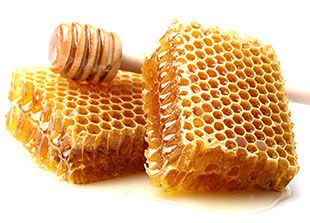 A beekeeper can be anyone that has a single hive in their backyard as a hobby or can be a beekeeper that has hundreds to thousands of hives working for their livelihood. To many beekeepers, beekeeping is a family tradition or business, an educational experience, a hobby, or a lifestyle. Many beekeepers are successful at what they do and are able to support themselves from beekeeping alone. While they may have bad years or good years, beekeeping is like any other agriculture commodity where there is a lot of unexpected obstacles throughout the year for the beekeepers to overcome.
A beekeeper can be anyone that has a single hive in their backyard as a hobby or can be a beekeeper that has hundreds to thousands of hives working for their livelihood. To many beekeepers, beekeeping is a family tradition or business, an educational experience, a hobby, or a lifestyle. Many beekeepers are successful at what they do and are able to support themselves from beekeeping alone. While they may have bad years or good years, beekeeping is like any other agriculture commodity where there is a lot of unexpected obstacles throughout the year for the beekeepers to overcome.In beekeeping, there are several different careers a beekeeper can have.
The beekeeper can be a salesperson and sell the products of the hive or beekeeping equipment. If they are selling products of the hive, they can sell honey, beeswax, propolis, royal jelly, or pollen and products made with those items as part of their ingredients. Another career aspect in beekeeping is pollination. Pollination in the United States normally involves beekeepers from several different states as they travel from coast to coast following the pollination needs. Beekeepers will travel to California to pollinate the almonds, Washington for the apple blossoms and Wisconsin for the cranberry blossoms. In order to get many of the food sources we have, we require the help of these beekeepers throughout the country!
Other areas in beekeeping that beekeepers make a career at are involved in the making and selling of new bees. In states like California and Georgia, beekeepers will spend their springs making new honeybee queens to sell to people across the United States. Along with those queens, beekeepers will also split the bees they have in their hives to make packages. This is where they will put 2-3 pounds of bees into a package along with a queen bee. They will then be shipped all across the United States to their new home. Once the new owner receives them, the honeybees will be transferred from their package into a hive.
Other careers in beekeeping are research and education. Several places across the United States are actively hiring people to research new ways to improve the health of honeybees. Research is crucial in helping to find new ways to help honeybees. Education to the public is another area that actively employs beekeepers. While beekeepers believe our industry is the sweetest in the world, not everyone knows how important our industry is, or ways the public can help improve the health of honeybees.
When it comes down to it, a beekeeper is very sweet and loves their honeybees. While beekeepers do keep honeybees, they also become masters at several different jobs along they way and began beekeeping for many different reasons. If you are looking to learn more about beekeepers, talk to a local beekeeper. I'm sure you'll be amazed at the different stories they'll tell you about what it means to be a beekeeper!

